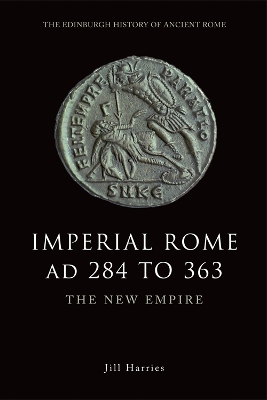The Edinburgh History of Ancient Rome
1 total work
A distinct perspective on the momentous religious change in the region Diocletian (284-305) and his principal successor, Constantine (306-337), would rule the Roman world for over half a century and Constantine's sons would build on their legacy. Administrative reform encouraged the rise of a bureaucratic culture, provincial government was reshaped and became more hierarchical and the court became more structured. The period was also one of momentous religious change. With Constantine's adoption of Christianity as the favoured recipient of imperial patronage, the religious landscape would, over time, be radically reshaped. Jill Harries combines the administrative reform and religious change with accounts of war, women and imperial cities to offer a new and revealing view of the region. Key features: " Focuses on the Emperor Constantine as a major figure and offers a context to his achievement " Addresses the role of imperial women, often ignored for this period " Studies the control of empires and how rulers fashion their claims to legitimacy Keywords: Roman history; Late Antiquity; Later Roman Empire; History of Christianity; Diocletian; Constantine; Emperor Julian.
